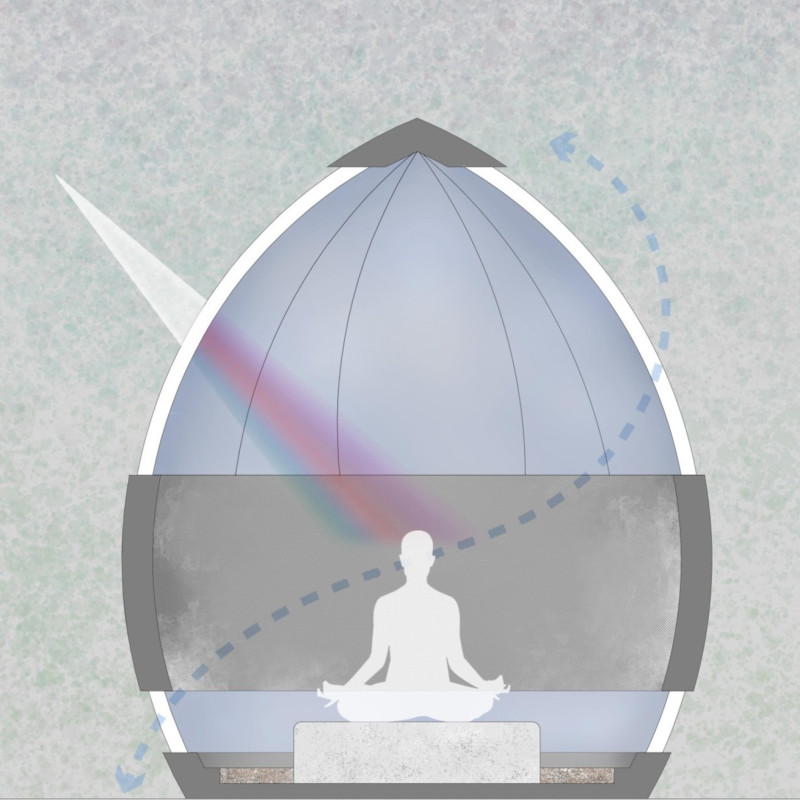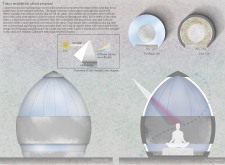5 key facts about this project
The Tokyo Meditation Cabins project offers a contemplative space designed for meditation and personal reflection in the urban environment of Tokyo. The design concept reflects the idea of human auras, translating this concept into a physical form that encourages tranquility and a connection with nature. The cabin's features create a calming atmosphere, providing an escape from the fast pace of city life.
Upper Windows and Light Dispersion
Upper windows fitted with glass prism material play an important role in the cabin’s design. They reflect sunlight and project a range of colors into the interior, enriching the overall atmosphere. This use of natural light engages the senses and enhances the experience of meditation, underscoring the benefits of a well-lit space in fostering a peaceful environment.
Natural Ventilation
In addition to the upper windows, another set of lower windows has been included to ensure proper natural ventilation. This thoughtful design choice supports comfort by allowing fresh air to flow through the cabin. Enhancing air quality is a key factor that contributes to a relaxing environment, ensuring that the meditation experience remains undisturbed by outside influences.
Seating and Grounding Elements
At the core of the cabin is a central seating area designed for flexibility. Users can choose how they want to meditate, making the space adaptable to different practices. Surrounding the seating, stones and rocks are integrated to create a more natural feel. This connection to the earth helps users feel grounded during their meditation sessions and aligns with the project's goal of fostering mindfulness.
Cultural Resonance of the Entrance
Access to the cabin is through a sliding door that incorporates elements of traditional Japanese architecture. This entrance design allows for a smooth transition between the interior space and the outside world. It adds a layer of cultural significance while providing easy entry into the meditation area.
Through careful attention to details, such as light interaction, ventilation, flexible seating, and cultural elements, the Tokyo Meditation Cabins create a space dedicated to personal contemplation and relaxation. The overall design invites individuals to engage in their meditation practice in a supportive and nurturing environment.


















































